Home Distilling Laws: Is It Illegal To Make Moonshine in Florida?

With the rise of sippin' moonshine and its growing popularity, everyone is eager to join the adventure. So, when it comes to the laws of distilling, is it against the law to brew moonshine in Florida?
In Florida, home distilling laws strictly regulate the production of moonshine, making it illegal to make moonshine without the proper licenses and permits.
Moonshine, which refers to illegally produced or unlicensed alcohol, is prohibited due to the potential risks it poses to public health and safety.
The production of moonshine involves the distillation of alcohol without the necessary oversight and quality control measures implemented by licensed distilleries.
This can lead to the creation of dangerous and unregulated spirits, which may contain higher levels of impurities and harmful substances.
Furthermore, unlicensed moonshine may not undergo the necessary fermentation process required to ensure the safety of the final product.
Owning an unauthorized still in Florida can result in serious penalties and legal consequences.
Producing moonshine without the proper licenses and permits is considered a third-degree felony, punishable by fines and imprisonment.
These penalties aim to deter the production and distribution of illicit liquor, thus protecting public health and upholding the state's alcoholic beverage control laws.
However, it is worth noting that a fuel alcohol permit can be obtained in Florida for the production of alcohol for fuel purposes.
This permit allows individuals to legally produce and possess a limited quantity of alcohol intended for use as fuel and not for consumption as an alcoholic beverage.
Making moonshine in Florida without the necessary licenses and permits is illegal due to the potential risks it poses to public health and safety.
Florida's strict regulations and penalties aim to discourage the production and distribution of unregulated spirits, while still allowing for the legal production of alcohol for fuel purposes.
What is Moonshine?
Moonshine, also known as white lightning, is a high-proof distilled spirit that is typically produced illegally, often in remote and rural areas.
Its production and distribution are often subject to legal restrictions and regulations.
The term moonshine originates from the secretive nature in which the spirit was historically produced, often under the cover of darkness 'by the light of the moon' to avoid detection by authorities.
Today, moonshine has gained popularity as a novelty and artisanal spirit. Many distillers sell 'legal' moonshine.
However, as moonshine is defined as illicitly produced high-proof spirits, a commercial version is not actually moonshine.
Definition of Illegal
Moonshine is illegal in the United States due to the Federal Alcohol Administration (FAA) Act, which prohibits the production of distilled spirits without a permit.
The consequences for offenders can be severe, including hefty fines, imprisonment, and the seizure of equipment and property.
Moonshine is classified as illicit because of the potential dangers associated with home-distilling spirits. Factors that contribute to its illegal status include the lack of regulation and oversight, which can lead to the production of unregulated and potentially dangerous alcoholic beverages.
Risks involved in home-distilling moonshine include the use of improper equipment and incorrect distilling methods, which can result in the production of tainted or poisonous alcohol.
Additionally, the high alcohol content of moonshine can lead to serious health risks if not properly produced.
It should be noted, however, that moonshine came to be illegal due to tax reasons and not safety reasons.
During the American Revolution the founding fathers were searching for means of additional funds to help pay for the war.
At this time Alexander Hamilton came up with the idea of a 'whiskey tax' which meant that home distilling was no longer legal because the government wanted to profit from its production.
Distilled Spirits Taxation and Regulation by the Alcoholic Beverage Control Laws
Distilled spirits are heavily taxed and regulated under both federal and state laws. The Alcohol and Tobacco Tax and Trade Bureau (TTB) is responsible for regulating the production, distribution, and taxation of distilled spirits at the federal level. Distillers must obtain a federal permit and pay excise taxes on all spirits produced.
At the state level, the Alcoholic Beverage Control (ABC) laws govern the production, distribution, and sale of distilled spirits.
Distillers are required to obtain a state permit and comply with various regulations, including labeling requirements and restrictions on advertising and marketing.
Home distilling of spirits is strictly regulated and often prohibited under both federal and state laws. Individuals without the necessary permits and licenses are not allowed to produce distilled spirits for personal use.
Overall, the taxation and regulation of distilled spirits by the Alcoholic Beverage Control Laws are comprehensive and aimed at ensuring the safe and responsible production and consumption of these alcoholic beverages.
Is it Legal to Own a Still in Florida?
In Florida, it is illegal to own a still for the purpose of distilling alcoholic beverages without the proper licenses and permits.
The possession of equipment used for the production of alcohol is regulated by state laws to prevent the unauthorized production and distribution of unregulated spirits. Engaging in such activities can lead to severe legal consequences and penalties.
The possession of a still without the proper license is considered illegal equipment under Florida law.
The state actively enforces regulations to uphold the safety and quality standards of alcoholic beverages.
Without the necessary oversight and quality control measures implemented by licensed distilleries, the production of moonshine can pose significant risks to public health.
Can You Legally Distill Moonshine in Florida?
To legally engage in alcohol production in Florida, individuals must obtain the appropriate licenses and permits.
This ensures that the production process meets the required standards and undergoes the necessary inspections.
Owning a still without the proper documentation can result in fines, imprisonment, and other legal penalties.
In summary, it is illegal to own a still in Florida for the purpose of distilling alcoholic beverages without the proper licenses and permits. The state enforces strict regulations to ensure the safety and quality of alcoholic beverages available to the public.
Are You in the Market for a Moonshine Still?
The Magnum All-in-One Still kit is an excellent choice for those who desire the performance of a pot still that is simple to assemble, operate, and can double as a fermentor!
Penalty for Possession of an Illegal Still?
The possession of an illegal still in Florida is a serious offense with severe penalties.
Individuals caught with an illegal still can face felony charges, which can result in imprisonment, probation, and hefty fines.
Possession of an illegal still is considered a third-degree felony in Florida. A third-degree felony is punishable by up to 5 years in prison and/or fines of up to $5,000. Additionally, those convicted may also be placed on probation, which includes regular check-ins with a probation officer and compliance with specific conditions.
It is important to note that these penalties can vary depending on the specific circumstances of the case.
Factors such as the type and size of the illegal still, any previous convictions, and the intended use of the still can all impact the severity of the charges.
The state of Florida takes the production of illicit alcohol seriously to protect public health and ensure compliance with safety and quality standards.
Therefore, it is crucial to obtain the necessary licenses and permits to engage in legal alcohol production and to avoid the legal consequences associated with the possession of an illegal still.
Is it Legal to Distill Alcohol in Florida?
In Florida, the distillation of alcohol is regulated by state and federal laws.
In Florida, unlicensed alcohol production and possession can result in severe penalties.
Manufacturing or selling alcohol without a proper license is considered a second-degree misdemeanor, punishable by up to 60 days in jail and a fine of $500. Possession of unlicensed distilled spirits is a first-degree misdemeanor, with penalties of up to 1 year in jail and a fine of $1,000. Individuals may also face probation and community service requirements.
Moonshine production and owning a still in Florida are strictly regulated. It is illegal to make moonshine without a proper license, and owning a still for the purpose of producing distilled spirits is also prohibited.
Distilled beverages, including moonshine, whiskey, rum, and vodka, are subject to specific legal requirements for possession and sale. Individuals must obtain the appropriate permits and licenses to possess distillation equipment and operate a distillery in compliance with state law.
To legally distill alcohol in the state, individuals or businesses must obtain a Craft Distillery License from the Florida Department of Business and Professional Regulations. The license allows for the production and sale of distilled spirits within certain parameters.
However, it is important to note that the possession and production of moonshine for personal consumption is illegal in Florida.
Moonshine refers to illegally produced or unlicensed alcohol, typically made at home without proper permits and regulations. The production and distribution of moonshine can lead to serious legal repercussions.
To legally produce distilled spirits in Florida, individuals or businesses must also obtain necessary permits from the federal government, such as the TTB Distilled Spirits and TTB Basic Permit. These permits ensure compliance with federal regulations and taxation of distilled spirits.
Craft distillers in Florida are also required to submit monthly reports to the Florida Department of Business and Professional Regulations. These reports provide information on production, sales, and inventory.
Distilling alcohol in Florida is legal with the proper Craft Distillery License and federal permits. However, the production and consumption of moonshine, or unlicensed alcohol, for personal use is strictly illegal and can result in severe legal consequences.
Florida Distillers Permit
To legally distill alcohol in Florida, individuals and businesses must obtain a Craft Distillery License, also known as the Florida Distillers Permit. This permit is required to produce distilled spirits, including moonshine, in the state.
The Craft Distillery License comes with a cost, which is approximately $4,000. In addition to the license fee, craft distillers in Florida must also submit monthly reports to the Florida Department of Business and Professional Regulations.
These reports serve as a way for the department to monitor production, sales, and inventory of distilled spirits. By requiring monthly reports, the state can ensure that distillers are operating within legal boundaries and complying with regulations.
In summary, the Craft Distillery License, or Florida Distillers Permit, is necessary for individuals and businesses to legally distill alcohol in Florida.
With a cost of approximately $4,000, along with the requirement to submit monthly reports to the Florida Department of Business and Professional Regulations, craft distillers must adhere to these regulations to remain in compliance with the law.
Federal Fuel Alcohol Permit Requirements
To obtain a Federal Fuel Alcohol Permit, individuals must provide identifying information for the still, including the location and type of still, as well as details about the intended use of the alcohol produced.
There are two options for legally distilling alcohol: obtaining a distilled spirits permit or a fuel alcohol permit.
In Florida, a fuel alcohol permit is available for those intending to produce alcohol exclusively for fuel use.
The permit comes with specific conditions and limitations on the use of the produced alcohol, such as not using it for beverage purposes. It is crucial to adhere to federal regulations and guidelines, including maintaining detailed records of production and ensuring compliance with all safety and environmental standards.
It is important to familiarize oneself with the laws and regulations surrounding the production of moonshine in Florida to avoid any legal issues. Understanding the federal regulations and guidelines is essential for obtaining and maintaining a Federal Fuel Alcohol Permit.
What is the Penalty For Selling Moonshine in Florida?
In Florida, the penalties for selling moonshine without a proper license can be severe. Individuals caught selling moonshine are subject to fines and potentially criminal charges.
Selling moonshine without a license is considered a third-degree felony, punishable by up to five years in prison and a maximum fine of $5,000.
Moreover, individuals who are caught possessing moonshine for the purpose of selling it may also face fines and criminal charges. Possession of moonshine with the intent to sell is also a third-degree felony in Florida and carries the same penalties as selling without a license.
Additionally, if the moonshine being sold exceeds 153 proof, which is equivalent to 76.5% alcohol by volume, there may be an additional fine imposed.
The fine for selling liquor exceeding 153 proof is $100 per gallon of spirits in excess of that limit.
Furthermore, in some cases, law enforcement authorities may also have the power to confiscate personal property used in the production or sale of moonshine, including equipment and any proceeds obtained from the illegal activity.
It is important to note that these penalties are in place to discourage the production and sale of unregulated alcohol, which can pose health risks and bypass quality controls implemented by licensed distilleries.
To engage in legal alcohol production and sales in Florida, individuals are required to obtain the appropriate licenses and adhere to the relevant regulations and laws.
Is a Fuel Alcohol Permit Available in Florida?
While it is true that a Florida state fuel alcohol permit is not available, one could potentially argue that their still was crafted for the creation of fuel alcohol if they also possessed a federal fuel alcohol permit and adhered to the corresponding federal regulations and guidelines.
This means that if you are interested in distilling your own alcohol, it is important to familiarize yourself with the laws and regulations surrounding the production of moonshine in Florida.
It is always recommended to consult with a legal professional to ensure compliance with federal and state alcohol regulations.
Where In The US Is Moonshine Actually Allowed?
Moonshine, a homemade distilled spirit, has a long and storied history in the United States. While it is illegal to produce moonshine without the proper license in most states, there are a few exceptions where it is allowed for personal consumption.
In Alaska, Arizona, Maine, Massachusetts, Michigan, Missouri, Ohio, and Rhode Island individuals are permitted to produce and consume moonshine for personal use.
However, it's important to note that permits are required in Arizona, and Massachusetts has transportation restrictions on moonshine.
North Dakota
One state that stands out for its unique moonshine laws is North Dakota. Here, individuals are allowed to produce moonshine for personal use, but they must adhere to the federally allowed number of gallons. This means that production must not exceed the limits set by federal regulations.
It's crucial to understand that these allowances are limited to personal consumption only.
Producing moonshine for commercial purposes still requires a proper license, as mandated by federal and state laws.
While moonshine production is largely illegal without a license, there are a few states in the US where personal consumption is permitted. Alaska, Arizona (with permits), Massachusetts (with transportation restrictions), and Missouri allow individuals to produce moonshine for personal use.
North Dakota has a unique law wherein personal-use moonshine production is allowed as long as it does not exceed the federally allowed number of gallons.
No matter where you reside, it is important to research the local, state and federal laws in your area.
Moonshine Legality Trends In the United States
In recent years, there has been a notable shift in the legality of moonshine production in the United States.
While the traditional view has been that moonshine is illegal in all forms due to its association with unregulated and potentially dangerous alcohol, several states have taken steps to legalize small-scale production for personal consumption.
States like Alaska, Arizona, Massachusetts, and Missouri have recognized the demand for moonshine among individuals who wish to produce and consume it responsibly.
These states allow for the production of moonshine, provided it is strictly for personal use. However, it is worth noting that in some states, such as Arizona, permits are required for home distillers.
One city that stands out as an example of moonshine legality is Key West, Florida. Here, individuals can produce their own moonshine as long as it is for personal consumption.
This popular tourist destination has embraced the craft of moonshine production, providing visitors with a unique opportunity to explore and enjoy the spirits made right in Key West.
Despite the trend towards small-scale production, it's important to emphasize that commercial production of moonshine still requires a proper license from both federal and state authorities.
Licensed distilleries have emerged, allowing for the legal production and sale of moonshine whiskey, providing consumers with access to high-quality and regulated distilled spirits.
Overall, the recent trends in moonshine legality in the United States reflect a growing recognition and acceptance of small-scale production for personal consumption, while still maintaining regulations for commercial production.
This shift has allowed individuals to explore the craft of moonshine making while ensuring the safety and integrity of distilled spirits.
Is Moonshine Actually Allowed in the United States?
While the production and consumption of moonshine have a rich history in the United States, the legality of this spirit varies across different states.
Some states, including Alaska, Arizona, Massachusetts, and Missouri, have recognized the demand for personal consumption of moonshine and have allowed for its production, albeit with restrictions. For example, in Arizona, home distillers are required to obtain permits.
However, it is crucial to note that commercial production of moonshine still requires proper licensing from both federal and state authorities. Licensed distilleries have emerged, allowing for the legal production and sale of moonshine whiskey, giving consumers access to regulated and high-quality distilled spirits.
Overall, while the trend towards small-scale moonshine production for personal consumption is growing, the commercial production of moonshine still requires a proper license.
The legality of moonshine in the United States is a complex issue that varies from state to state, highlighting the importance of understanding the specific laws and regulations governing its production and consumption.




